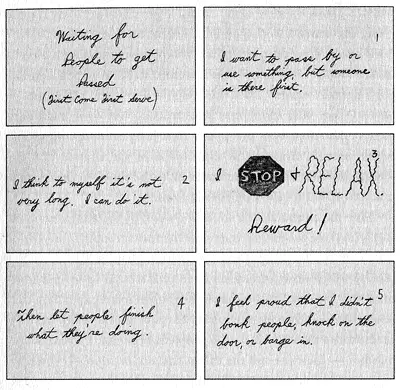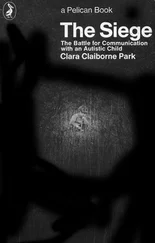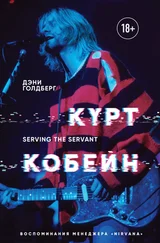Clara Park - Exiting Nirvana
Здесь есть возможность читать онлайн «Clara Park - Exiting Nirvana» весь текст электронной книги совершенно бесплатно (целиком полную версию без сокращений). В некоторых случаях можно слушать аудио, скачать через торрент в формате fb2 и присутствует краткое содержание. ISBN: , Жанр: Психология, на английском языке. Описание произведения, (предисловие) а так же отзывы посетителей доступны на портале библиотеки ЛибКат.
- Название:Exiting Nirvana
- Автор:
- Жанр:
- Год:неизвестен
- ISBN:0-316-69117-8
- Рейтинг книги:4 / 5. Голосов: 1
-
Избранное:Добавить в избранное
- Отзывы:
-
Ваша оценка:
- 80
- 1
- 2
- 3
- 4
- 5
Exiting Nirvana: краткое содержание, описание и аннотация
Предлагаем к чтению аннотацию, описание, краткое содержание или предисловие (зависит от того, что написал сам автор книги «Exiting Nirvana»). Если вы не нашли необходимую информацию о книге — напишите в комментариях, мы постараемся отыскать её.
All illustrations are by Jessy Park.
Exiting Nirvana — читать онлайн бесплатно полную книгу (весь текст) целиком
Ниже представлен текст книги, разбитый по страницам. Система сохранения места последней прочитанной страницы, позволяет с удобством читать онлайн бесплатно книгу «Exiting Nirvana», без необходимости каждый раз заново искать на чём Вы остановились. Поставьте закладку, и сможете в любой момент перейти на страницу, на которой закончили чтение.
Интервал:
Закладка:
For some years Jessy had suffered from a devastating verbal tic. At the end of every sentence — every sentence, sometimes every phrase — came an automatic, meaningless «hello», often trailed by proliferating syllables that made her speech even harder to understand than it was already. I’d tried everything, I thought — coaxing, withholding favorite foods until they were properly asked for, positive and negative points. Nothing worked. The behavior, I decided, was simply not within Jessy’s powers of control.
That summer, with Anna and Diana on board and Jessy’s brother to support them, Jessy’s father and I were able to go on a trip. When we came back the hellos were gone.
They had been extinguished by the very methods I had given up on, applied with the severity I hadn’t been able to muster. A hundred negative points for each hello, hello. Add them up hello, two hundred hello, three hundred in a minute hello, thousands in an hour. Of course Jessy had screamed and wailed and shrieked. The teenage therapists waited it out. They told us how long the miracle had taken: four terrible, successful hours.
The steadfast deductions were an essential ingredient in the mix that liberated Jessy. But they were not the only ingredient. Without the atmosphere of affection and mutuality the twins had created, I doubt any such miracle would have taken place. The twins did everything with Jessy. They swam with her, mowed the grass with her, hung up the laundry with her, and they did it all because they wanted to. She was their project and their pleasure; I could never have asked anyone to spend as much time with her as they did. They even extended mutuality to points; to Jessy’s contract for July 28, 1973, are appended contracts for Anna, Diana, and Paul, in Jessy’s own handwriting. Anna, like Jessy, got points for Trying New Foods; Diana lost them for Failing to Exercise; big brother penalized himself for Bad Words and Not Writing One Translation of a French Sonnet Every Week. Jessy’s counter got a workout, and everybody had fun. I’ll never know how much I could have accomplished if my love had been as tough as theirs, for you haven’t read this far without realizing that (though the hellos never came back) many of the problem behaviors are still with us. But to this day Jessy won’t snap at Anna as she will at the rest of us. «Anna is strict!» she says cheerfully when I ask her why.
It was, however, another fifteen years before we came across a method that addressed directly the physical intensities that accompanied Jessy’s hypersensitivities. I met June Groden at one of those meetings of the Autism Society of America where assembled parents and professionals learn so much from one another. June knew autism, and she had been working with behavior therapy for many years. I told her about the obsessiveness, the hyperreactivity, the compulsiveness that still resisted Jessy’s efforts and ours. She suggested that Jessy, the contracts long behind her, might be interested in trying something new: «imagery scenes». So Jessy, nearly thirty, embarked on a second therapeutic journey.
What June had developed, in her school for autistic and braindamaged children, was individualized scenarios designed to enable a person — he or she need not be autistic — to deal with the particular stressful situations that were causing trouble. The method is related to what is called in the trade «desensitization», in which phobic patients are gradually accustomed to confronting and conquering their crippling fears. The twins had used it before they knew its name, when with rewards and jokes and fun and persistence they had got Jessy to tolerate some too-good music. The Groden method also used rewards. But to desensitization it added relaxation.
Relaxation, however, went far beyond soothing backrubs and useless exhortations not to be tense. It was a technique, to be taught and practiced. Like the contracts, it was specific, prescriptive, repetitive — exactly the kind of thing Jessy liked and could understand. And she could read about it in a book. [35] J. R. Cautela and J. Groden, Relaxation: A Comprehensive Manual for Adults, Children, and Children with Special Needs (Champaign, 111.: Research Press, 1978).
Imagery scenes differed from conventional desensitization in another respect. Phobic patients confront their fears in actual situations. With imagery scenes the process, from original stressor to final reward, takes place entirely in imagination — except for the relaxation. That is real.
June presented the whole thing to Jessy as an actual prescription, to be taken three times a day. It consisted of a series of five or six index cards. Typical is the scenario «Someone criticizes me at work». That’s the first card. Then, «I get upset but I say STOP [Jessy has drawn a stop sign], RELAX [written in wavy capitals]». Next card: «I say to myself, ‘Everybody makes mistakes. No big deal.’» Next, «I feel proud that I handled it. My supervisor thinks I am a good worker». Then the imaginary reward. The sequence was so clear that soon Jessy was creating her own imaginary scenes. And that was the point; that Jessy should control the whole process, from the determination of the stressor and the identification of the problem behavior, to the choice of the reward, taken from her treasury of Enthusiasms.
Like the contracts, the scenarios work by focusing attention. But with these too autism may shift the focus from the purpose of the process to the process itself. Jessy is delighted to talk about her scenes, which now (of course) have proliferated to several hundred. But she is as likely to fix on the multicolored paper clips that keep them neatly separate, or on the fact that a series has five cards rather than six, as on the problem behavior. Pattern, color, number — these are still the things that are intrinsically interesting, worth thinking about and talking about, over and over again.
Jessy has practiced her scenes daily since the early eighties, for like the contracts, they are no simple panacea. It is a lot easier to imagine a response than to summon it when needed, especially since in her intensest distress, Jessy doesn’t want to relax. And although I’m not around when she goes through her cards it s important that the process be self-administered — I can guess that a process so often repeated becomes a mechanical routine. Nevertheless, Jessy invokes it not less but more and more as she grows older. Caught up in some overreaction, to a what-question, to a cough or a sneeze, she’ll say, «I must practice my scenes, and depart for her room to do just that». The cards empower her to control — not always, not entirely, but often — behavior that would make it impossible for her to live and work in a normal community.

A sequence from Jessy's card system for relaxing
A few months ago 1 congratulated her on how much less she’s been crying these days. «I can’t remember», I told her, «the last time you cried». «October 14!» she says, then adds: «Must be the scenes helped/» And she’s just created a new scenario, «Waiting for People to Get Passed (First Come First Serve)». «I want to pass by or use something, but someone is there first. I think to myself it’s not very long. I can do it. I STOP and RELAX.
Reward! Then let people finish what they’re doing. I feel proud that I didn’t bonk people, knock on the door, or barge in».
Jessy’s had a fine time while I’ve been writing this chapter. A delighted collaborator, she has happily listed for me her recent rewards. They are autism at its peculiar best. Jessy’s rewards are nothing like the imaginary chocolate chip cookie June originally suggested. The twenty-nine items include, along with auroras and four kinds of eclipses, Route 7, south of Great Barrington and north of Manchester Center, and a «refrigerator set at vacation mode». The only one that is at all predictable is «double or more fortune Perugina Baci chocolates». We turn to the past: she may not have much interest in her old books, but she reads every word of the contracts — pluses, minuses, the record of almost two years of struggle. She regards it all with happy equanimity. I’m not surprised. I remember her comment on Darth Vader, who was famously bad but «turned out to be a good guy. I guess he learned from consequences! Like me!»
Читать дальшеИнтервал:
Закладка:
Похожие книги на «Exiting Nirvana»
Представляем Вашему вниманию похожие книги на «Exiting Nirvana» списком для выбора. Мы отобрали схожую по названию и смыслу литературу в надежде предоставить читателям больше вариантов отыскать новые, интересные, ещё непрочитанные произведения.
Обсуждение, отзывы о книге «Exiting Nirvana» и просто собственные мнения читателей. Оставьте ваши комментарии, напишите, что Вы думаете о произведении, его смысле или главных героях. Укажите что конкретно понравилось, а что нет, и почему Вы так считаете.



![Майкл Азеррад - Come as you are - история Nirvana, рассказанная Куртом Кобейном и записанная Майклом Азеррадом [litres]](/books/392533/majkl-azerrad-come-as-you-are-istoriya-nirvana-ra-thumb.webp)



![Эверетт Тру - Nirvana - Правдивая история [litres]](/books/399241/everett-tru-nirvana-pravdivaya-istoriya-litres-thumb.webp)




